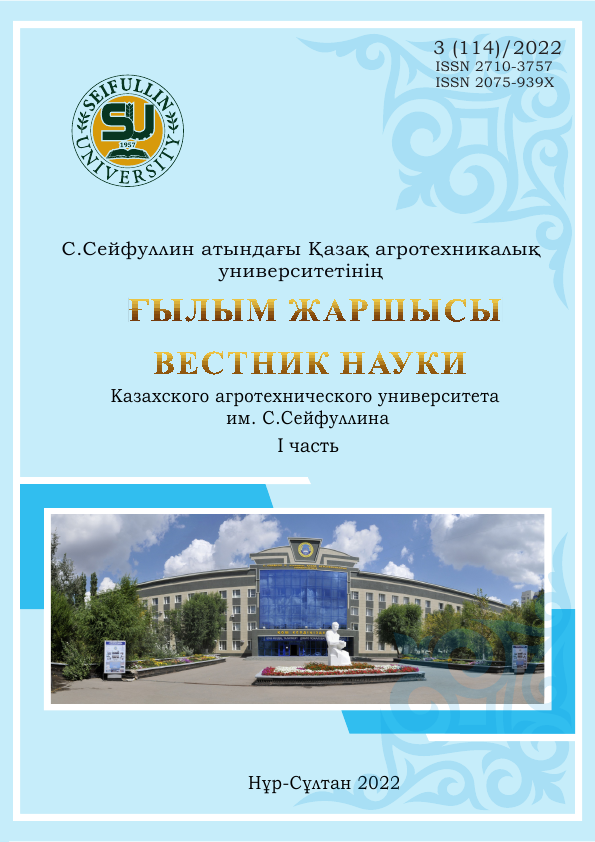PHYTOSANITARIAL ANALYSISI OF FLAX CROP AND BIOLOGICAL EFFICIENCY OF THE APPLICATION OF BIOLOGIZED PESTICIDE TREATMENT
DOI:
https://doi.org/10.51452/kazatu.2022.3(114).1179Keywords:
flax; Linumusitatissimum L; pests; plant disease; ecological treatment.Abstract
Recently, flax has become an increasingly popular oilseed crop on the market
in recent years. In Kazakhstan, flax has been cultivated on an industrial scale since
2017. This culture is export-oriented, for which it is necessary to take into account
the composition, environmental friendliness of products. To date, there is
insufficient data on phytosanitary monitoring of the development and spread of
diseases in our region. Also, the use of aggressive chemical treatment can harm the
quality of the seed material, fibers and reduce the quality of the oil. In this work,
phytosanitary monitoring of flax crops and the biological effectiveness of the
applied biologized pesticide application schemes were carried out. As a result of
the use of combined treatment schemes, 100% biological effectiveness against
insect pests (flax thrips, flax flea, etc.) was noted, as well as 68.3% effectiveness
against weeds.

